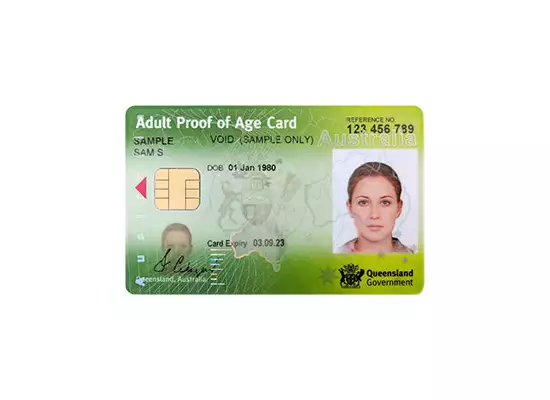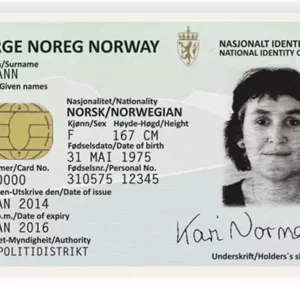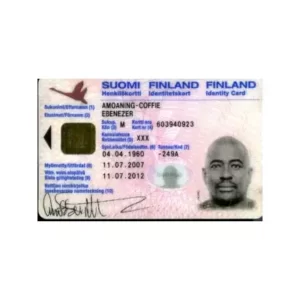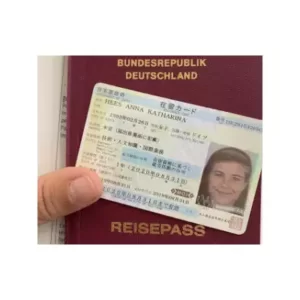BELGIAN ID CARD
$980.00
BELGIAN ID CARD
As of 2020, over 28 million Thales’ Belgian ID cards have been issued in the country.
Initiated in 2003, the BelPIC (Belgian Personal Identity Card Project) program has reached 100% of its population targets at the end of 2011.
The polycarbonate credit card-sized document is the national identification card in the country, the official and mandatory ID document for Belgian citizens over 12.
Description
Unveiling the Belgian ID CARD
The Belgian Identity Card: A Historical Perspective
Origins
The Belgian ID card, or “Carte d’Identité Belge,” has a rich historical heritage dating back to its introduction in 1919. It was initially introduced as a means to facilitate the identification of Belgian citizens during the aftermath of World War I.
Evolution
Over the years, the Belgian identity card has undergone several transformations, adapting to the changing needs of society. From its humble beginnings as a simple identification document, it has evolved into a multifunctional piece of official identification.
The Modern Belgian Identity Card
Purpose and Significance
Today, the Belgian identity card serves as an essential document for Belgian citizens, carrying numerous benefits and serving various purposes. It is not only a proof of identity but also a gateway to accessing a wide range of services and entitlements.
Key Features
The modern Belgian identity card boasts advanced security features to prevent counterfeiting, including embedded microchips, holograms, and biometric data. These features make it one of the most secure identification documents in the world.
Obtaining a Belgian Identity Card
Eligibility
To obtain a Belgian identity card, an individual must meet specific eligibility criteria, primarily being a Belgian citizen. Non-Belgian residents have their separate identification documents.
Application Process
We provide a step-by-step guide to the application process for a Belgian identity card, ensuring that you have all the information you need to navigate this bureaucratic procedure seamlessly.
Functions and Uses
Travel Document
One of the most significant advantages of the Belgian I D card is its utility as a travel document. It allows Belgian citizens to travel freely within the European Union and serves as an official form of identification abroad.
Access to Public Services
The card is indispensable for accessing a wide range of public services, including healthcare, education, and social benefits. We outline the services that require the presentation of your Belgian identity card.
Digital Signatures and Authentication
In an increasingly digital world, the Belgian I D card also enables citizens to use digital signatures for secure online transactions and interactions with government services.
Maintenance and Renewal
Expiry and Renewal
Belgian I D card have a validity period, and citizens must be aware of the expiry date to ensure uninterrupted access to services. We provide guidance on the renewal process.
Loss or Theft
In the unfortunate event of a lost or stolen card, immediate steps must be taken to prevent misuse. We explain the necessary actions to take in such situations.
Unlocking the Power of Belgium’s Electronic ID Cards
In the year 2020, Belgium marked a significant milestone with the issuance of over 28 million Thales’ Belgian ID cards, a testament to the country’s commitment to modernizing identity verification. This transformative journey began in 2003 with the initiation of the BelPIC (Belgian Personal Identity Card Project) program, which successfully reached its goal of providing these high-tech identification cards to every eligible citizen by the end of 2011.
The Polycarbonate Revolution
At the heart of this initiative lies the polycarbonate credit card-sized document, the Belgian I D card . It stands as the official and mandatory form of identification for Belgian citizens aged 12 and above. This modern identification tool replaces the traditional paper-based identity documents, offering enhanced security and convenience.
The Second Generation
Building on this success, Belgium introduced the second generation of electronic ID cards in 2014. This marked a significant leap forward in identity verification technology. Today, over 2 million of these advanced cards are issued annually, highlighting their widespread adoption.
Strengthening Security
Belgium’s commitment to security and fraud prevention led to an important development in 2018 when it was decided to add fingerprints to the ID cards. This decision aligns with the European Union’s proposal of April 2018 to enhance the security of identity cards for Union citizens. The European Parliament approved this proposal in April 2019, and it was ratified in June of the same year. The new ID cards, featuring two fingerprints, were introduced in early 2020 as part of a pilot program in Lokeren. Pending successful outcomes in 25 pilot cities, a nationwide rollout was planned for March.
Embracing Mobile Authentication
In parallel with the evolution of ID cards, Belgium introduced an advanced mobile authentication solution that bolsters the country’s fast-growing itsme® Mobile ID scheme. This innovative app streamlines enrollment, log-in, and signature processes for various online services. Certified for eIDAS (EU electronic ID standards), it also meets PSD2 (EU open banking regulation) and GDPR (EU privacy protection) requirements. With 350,000 users and one million monthly transactions within a year of its launch, itsme® Mobile ID is making its mark on Belgium’s digital landscape.
Three Cards, One Purpose
Belgium’s ID cards are classified as electronic, thanks to their embedded microprocessors. These cards serve dual purposes, containing certificates for authentication and electronic signatures. Some information is printed on the card and chip, while other details are exclusively stored on the micro-controller. The ID1 card, in credit card format, displays essential information such as the holder’s portrait, name, date of birth, and more. It is mandatory for citizens aged 15 and above. Additionally, the new Belgian ID card includes two fingerprints stored in the chip.
Specialized Cards for All
Belgium also caters to the needs of foreign residents with a residency card, which has a chip for online services access. For children under 12, the Kids-eID provides secure identification and travel documentation, with potential for various applications.
Powering the eGovernment
Belgian I D card play a pivotal role in the country’s eGovernment initiative. The goal is to create a unified virtual public administration that enhances user convenience while respecting privacy and administrative diversity. These national eID cards have become instrumental in securing online transactions and streamlining e-business.
A World of Applications
With over 800 public applications available online, Belgium has embraced digital transformation. A significant majority of users rely on online authentication with the national eID, showcasing its effectiveness. This digital shift has resulted in tangible benefits, including a surge in online business registrations and the convenience of reporting crimes online, all made possible by the secure eID card.
Efficiency and Convenience
The eID card is not just for individuals but also serves as a civil servant ID for identification and electronic signatures. As of March 2019, electronic signatures are used across 589 national registries and 102 consular posts to issue vital certificates. This initiative aligns with Belgium’s overarching plan to simplify administrative processes.
One Identity for All Services
Belgium prides itself on offering citizens a single, sovereign identity, granting them access to a multitude of services. This streamlined approach, coupled with robust privacy protection measures, has not only saved costs but also improved efficiency and government services.
A Forward-Thinking Approach
Belgium’s journey toward a digital future has been characterized by pragmatism and collaboration. Regional cooperation and a focus on data flow protection have driven success. By embracing modernity, Belgium is advancing toward a safer, more efficient future, where citizens and businesses benefit from a unified digital identity.
Streamlining Government Services
A pivotal moment came in 2014 when Belgium enacted a law that places citizens and companies at the center of e-government affairs. This law prevents federal services from redundantly requesting data already available electronically from authentic sources like the Belgian National Register. The emphasis on data reuse has led to significant administrative cost savings, improved services, and greater efficiency within the Federal Government.
Digital Dividends
The incredible feeling of holding a Belgian ID card for foreigners
Belgium’s digital transformation has already yielded substantial dividends. Online business registration rates have surged, and citizens can conveniently report crimes online, all thanks to the secure eID card. It’s clear that Belgium’s electronic ID cards are not just a form of identification but also a cornerstone of its digital evolution.
In summary, Belgium’s journey towards modernizing identity verification has not only transformed the way its citizens interact with the government but also set an example for other nations seeking to harness the power of digital identity. With its forward-thinking approach and commitment to security, Belgium’s electronic ID cards are ushering in a new era of efficiency and convenience for its people and businesses.
I want to share with you the incredible feeling of holding a Belgian ID card for foreigners in my hands. It’s more than just a piece of plastic; it represents a sense of belonging, acceptance, and a new chapter in my life.
When I first received my Belgian ID card, a rush of emotions washed over me. It was a tangible symbol of my integration into this beautiful country, a place that had become my second home. The card itself was a work of art, showcasing Belgium’s rich history and culture. The elegant design, the national symbols, and the words “Royaume de Belgique” all spoke volumes about the country’s proud heritage.
But beyond the aesthetics, this card held the power to open doors, both literally and figuratively. It granted me access to the many benefits and privileges that come with living in Belgium. The card was my ticket to healthcare, education, and employment, ensuring that I could build a secure and prosperous future for myself and my family.
Every time I presented my Belgian ID card, I felt a profound sense of gratitude. Grateful for the warmth and hospitality of the Belgian people, who had embraced me as one of their own. Grateful for the opportunities that this card had unlocked, allowing me to pursue my dreams and aspirations.
It also served as a constant reminder of the diversity and inclusivity that Belgium represents. In a world where borders and divisions often dominate the narrative, this card was a beacon of hope, reminding me that unity and acceptance were possible.
As I held my Belgian ID card, I couldn’t help but reflect on the journey that had brought me here. It was a journey filled with challenges, but also with moments of joy and discovery. This card was a testament to my resilience and determination, a reminder that I could overcome any obstacle that came my way.
So, if you’re fortunate enough to hold a Belgian ID card for foreigners, cherish it. Let it be a source of pride and a symbol of hope. It represents not just a legal status, but a sense of belonging to a vibrant and welcoming community. Embrace it, and let it remind you that in Belgium, and in the hearts of its people, you have found a home.







Reviews
There are no reviews yet.